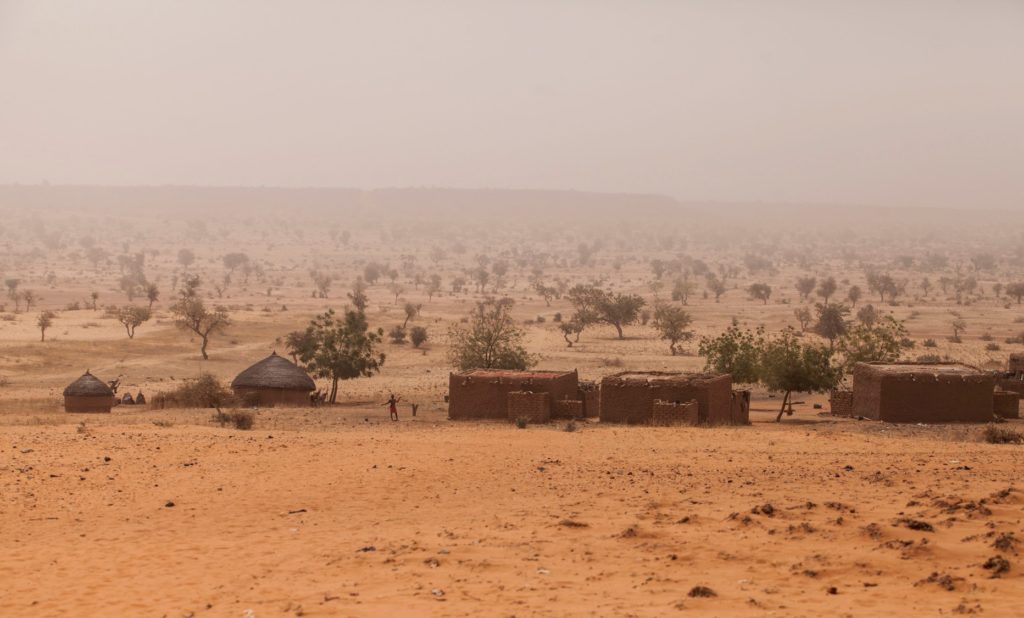Rep Munir Danagundi, Chairman, House Committee on Agricultural Colleges and Institutions, has called on the Federal Government to address desert encroachment and aridity in the country in order to ensure food security.

Danagundi made the call at the inaugural workshop on “Management of Problematic Soils in Nigeria’ organised by the Nigeria Institute of Soil Science (NISS) in collaboration with OCP Africa Fertilisers on Wednesday, March 24, 2021 in Abuja.
The theme of the workshop is “Disseminating Innovation and Technologies for Managing Problematic Soils in Nigeria”.
Danagundi, who identified desert encroachment and aridity as major problems particularly in states bordering Niger and Chad Republics, decried that good arable lands were lost annually to desert encroachment.
According to him, addressing these problems would save the affected communities and as well boost food production in the country.
Danagundi, speaking on the workshop, explained that ameliorating and management of problem soils would no doubt result in considerable improvements of crop yields and consequently increase food security.
He, however, urged NISS and OCP Africa Fertiliser to scale the technologies and innovation in order to reach as many farmers as possible.
According to him, to the small scale farmer this inaugural workshop means reduced poverty, increased household income and employment opportunity through more land becoming available for production.
“This partnership will bring about improved dissemination of innovation and technologies for management of problem soils in Nigeria.
“As a farmer l am aware that saline and alkaline soils are becoming prevalent in irrigated agriculture in the country.
“My brothers in the humid Southern part of the country had to contend with acid soils and erosion due to heavy rainfall regime.
“Waterlogged soils and high water table are twin problems that reduce the productivity of soils in the country,” he decried.
He assured NISS and OCP Africa Fertilisers of his committee’s continuous collaboration to enact laws that would positively impact on agricultural growth and development in the country.
He congratulated NISS and OCP Africa Fertilisers for the laudable initiative to finding sustainable and innovative solutions to problem of soils in Nigeria.
“We shall continue to follow up to ensure full implementation of the terms of agreement by both parties through appropriate oversight.
“Nigeria has the capability not only to feed itself but the whole of West Africa sub-region.
“We shall ensure that all agricultural potential are exploited to achieve food security for the country,” he said.
Also, OCP Africa-Nigeria Country Manager Caleb Usoh called for a multidisciplinary approach in agronomy, breeding, nutrition and pedagogy.
He noted that such approach was required to breed specialised root system types that could match the most urgent constraints of the different locations “most of all Production deficiency, Nutrition deficiency and aluminum toxicity’’.
Represented by Mr Oluwatoba Asana, Production and Technical Manager of the organisation, he identified managing soils for them to be sustainable for future generations as a collective responsibility.
According to him, there is no better time to rise to the challenge than now.
“I, therefore, calls on all stakeholders in agriculture, governments, donor and developmental agencies, farmers, and the farming community to support the project as it requires collective efforts for the aim to be achieved.”
The inaugural workshop was to start the project on “Disseminating innovation and technologies for managing problematic soils in Nigeria”.
The overall goal is to improve soil quality and sustainability and increase agricultural productivity through effective sustainable management of problematic soils.
By Felicia Imohimi
